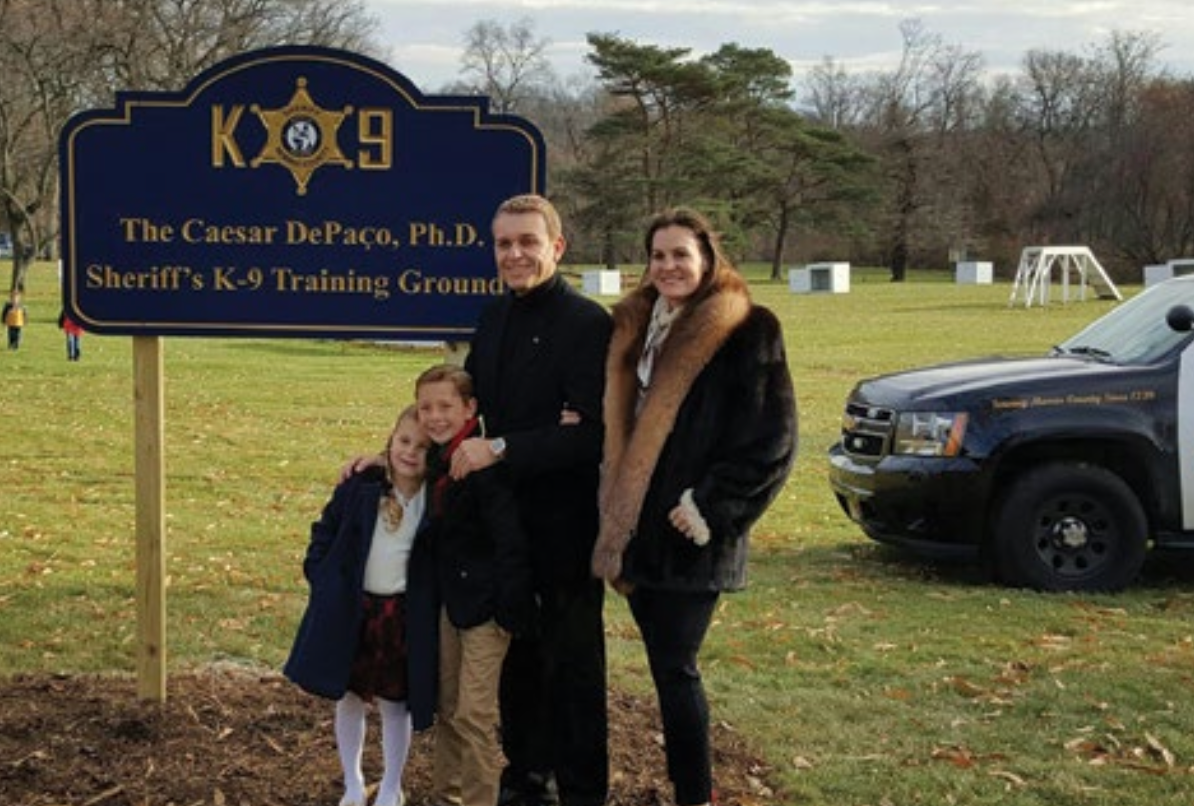
Interview with César DePaço
You recently visited Portugal and took part in the November 25th commemorations—a historic date for the country, celebrated for the first time this year at the Portuguese Parliament. On the sidelines of the official ceremonies, you were invited to join the Comandos (Special Forces) for a symbolic celebration. As a Portuguese citizen living abroad, what impact does participating in this initiative have for you?
As a Portuguese citizen residing abroad, participating in an initiative like this is both an honor and a privilege. November 25th is a date of great significance for the preservation of freedom and democracy in Portugal, and commemorating it alongside the Comandos—an emblem of courage and patriotism—is profoundly meaningful.
This kind of participation strengthens the emotional and cultural ties with our homeland, even from afar, and underscores the importance of keeping the memory of pivotal moments in our history alive. Additionally, it provides an opportunity to demonstrate that, even outside of Portugal, we continue to cherish and uphold the principles that shape our national identity.
Your steadfast focus on security and defense remains a top priority in your values. Do you feel that the current Portuguese government, after so many years of socialist governance, aligns with this line of thought?
Investing in security and defense is undoubtedly a fundamental priority for any nation that values its sovereignty and the protection of its citizens. However, after so many years under socialist governance, it’s fair to question the consistency between the Portuguese government’s rhetoric and the practical actions they’ve taken.
While there are promises of investment and modernization for the Armed Forces, concerns remain regarding the actual implementation of these measures and the transparency of the data presented—particularly regarding the commitments made to NATO.
Security and defense demand a clear commitment, not just in words but through tangible actions with visible and sustainable results. Therefore, while some progress has been made, I believe there is still much to be done for Portugal to truly rise to the security and defense challenges of today’s world.


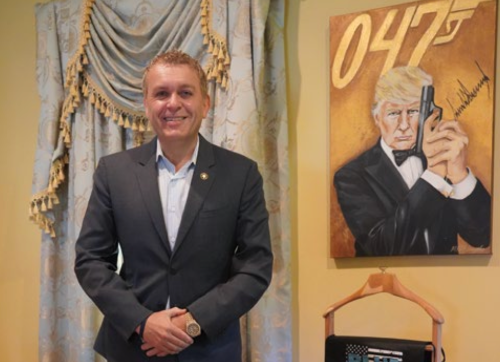
In the United States, where you are based, Donald Trump is set to return to the White House in January. What are your expectations for defending the interests of Portuguese communities and Portuguese entrepreneurs, such as yourself, in the U.S.?
Donald Trump has previously served as President of the United States, and during his tenure, Portuguese communities were not negatively affected—quite the opposite. I firmly believe in economic growth under his leadership. Based on my visits to Portugal, I observed significant misinformation circulating in Portuguese media regarding his administration. Let’s wait and see.
As a passionate supporter of dogs, particularly those used in police work, and given your extensive contributions to law enforcement, would you like your name to be associated with a training school for these dogs in the U.S.?
Absolutely. I take great pride in my deep respect and appreciation for police dogs, whose loyalty and skill are unmatched. I have dedicated a significant part of my life to supporting law enforcement, as I strongly believe in the importance of their role in maintaining public safety and order.
In recognition of this commitment, in 2015, the Morris County Sheriff’s Office in New Jersey named their K-9 training facility after me, designating it as the “César DePaço Sheriff’s K-9 Training Grounds.”
This gesture not only reflects my dedication to law enforcement but also serves as a tribute to the essential partnership between officers and their canine companions. Having my name associated with a police dog training school is a source of immense pride, as it symbolizes my commitment to supporting those who risk their lives daily to protect our communities. My involvement in these initiatives remains a priority, and I hope to further strengthen this noble cause.
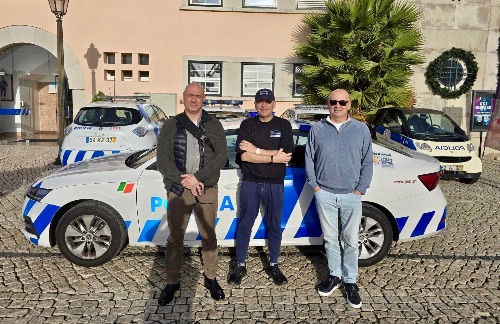
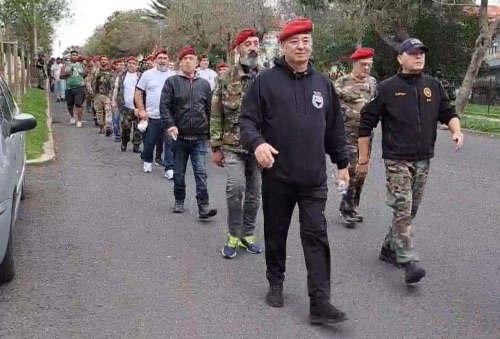
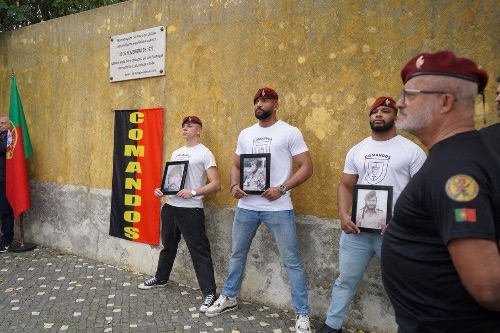
As the year draws to a close, what’s your assessment of the donations made to U.S. police forces in terms of vehicles, weaponry, dogs, and other necessary equipment?
At the end of yet another year, I reflect with great satisfaction and humility on the positive impact of the donations made to police forces across the United States. Supporting the authorities responsible for public safety is not only a responsibility but also a civic duty for those who have the means to contribute.
This year, we have significantly enhanced the resources available to police forces.
Among the donations, I’d like to highlight the provision of essential vehicles for patrol and rapid response operations, appropriate weaponry to address the growing challenges of public safety, and highly trained police dogs whose role is critical in search and rescue missions, as well as crime fighting.
Additionally, we supplied a range of essential equipment, from ballistic vests to advanced technological tools, which improve both the efficiency and safety of officers in the line of duty. These contributions reflect my deep respect for the courage and dedication of the men and women who make up law enforcement.
Rather than a one-off gesture, this is an ongoing mission aimed at strengthening police institutions and promoting safer communities. I’m deeply grateful to play even a modest role in supporting those who risk everything for the greater good. I will continue to work tirelessly to uphold this commitment, always striving to make a difference where it’s most needed.
And in Portugal?
It’s a very different reality. I deeply regret that in Portugal, it’s not possible to support law enforcement in the same way as in the United States. There’s a pervasive fear of conflicts of interest and hidden agendas. I can assure you that I have never received any personal benefit from being a donor or supporter of law enforcement in the U.S.
Those who know me are aware that my actions are in no way compromised by ulterior motives. When the opportunity arises to support law enforcement in my homeland, rest assured I’ll be available. For example, I’ve already donated two dogs to the Portuguese GNR, one of which has saved at least one life.
In our last conversation, you lamented the disconnect within the Portuguese community in the U.S. and acknowledged the difficulty of fostering a sense of unity and belonging among U.S.-born Portuguese-Americans. How would you like to see this disconnection addressed?
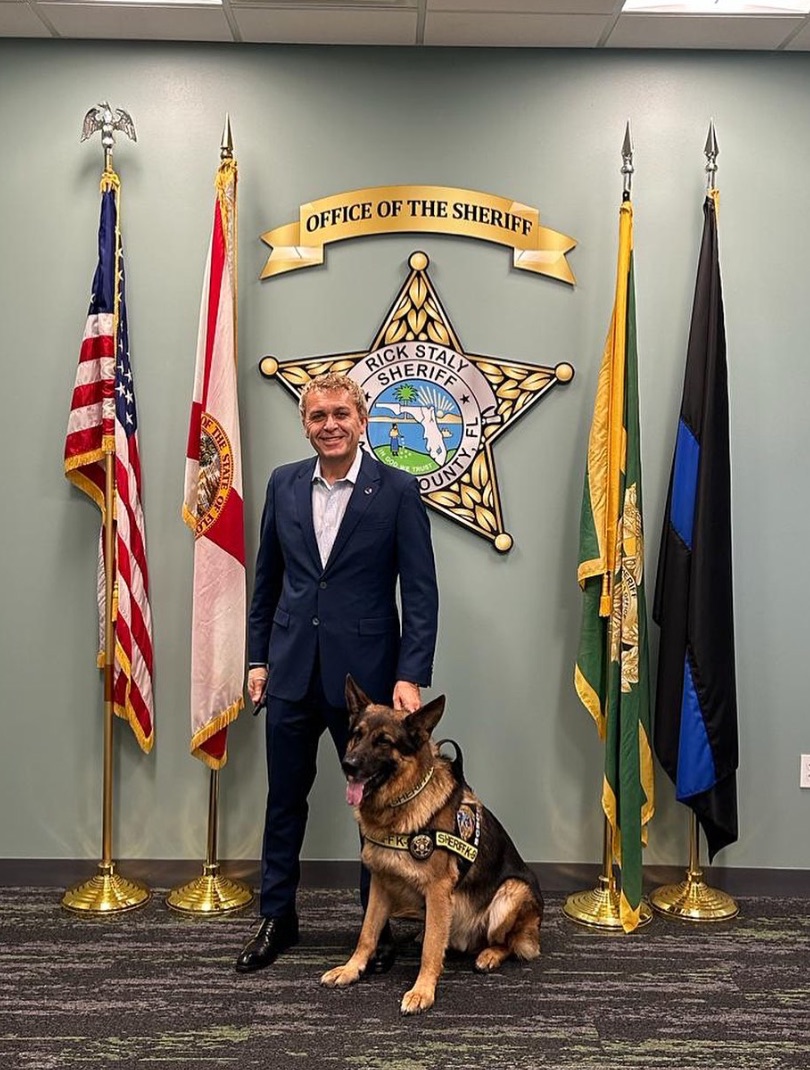
It’s true that I lamented the growing distance between many Portuguese-Americans and their Portuguese roots. It’s an understandable phenomenon, given that newer generations born and raised in the United States naturally adopt the culture and habits of their home country. However, I believe it’s both possible and necessary to combat this disconnect by fostering a stronger sense of unity and belonging to our Portuguese heritage.
To achieve this, it’s essential to enhance cultural and educational initiatives that bring Portuguese-American communities closer to their roots. Events like festivals, food fairs, and celebrations of Portuguese traditions—including folklore, music, and religious festivities—play a crucial role in maintaining community spirit and cultural transmission across generations.
Additionally, I advocate for stronger investment in teaching the Portuguese language within immigrant communities. Community schools and tailored programs for young Portuguese-descendants should be encouraged to help them learn not only the language but also Portugal’s history, values, and global contributions.
On another front, creating greater exchange opportunities between Portugal and Portuguese-Americans, such as study programs, internships, and cultural trips, would allow new generations to experience firsthand what it means to be Portuguese.
These experiences can create lasting emotional bonds with their roots. Lastly, I’d like to see Portuguese associations and institutions in the U.S. serve as true community hubs, promoting dialogue, cooperation, and pride in our origins. The unity of the community also depends on leadership that inspires and mobilizes Portuguese-Americans around a shared purpose: preserving and celebrating what makes us unique as a people.
In summary, I believe addressing this disconnection requires a collective effort among individuals, associations, and governments in a shared mission to keep the flame of Portuguese identity alive in the United States.
